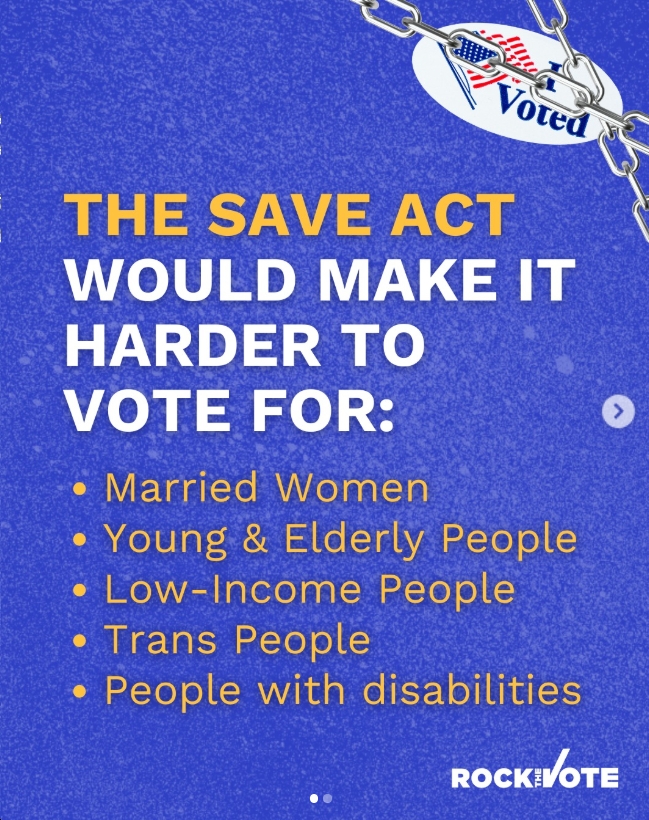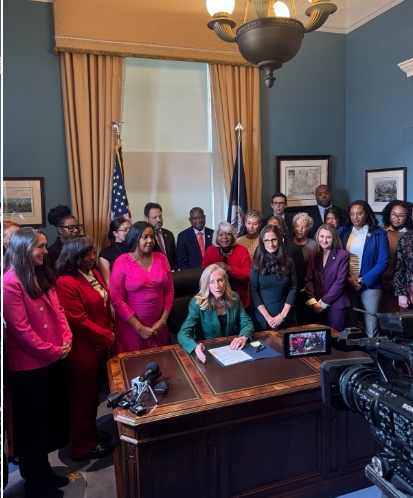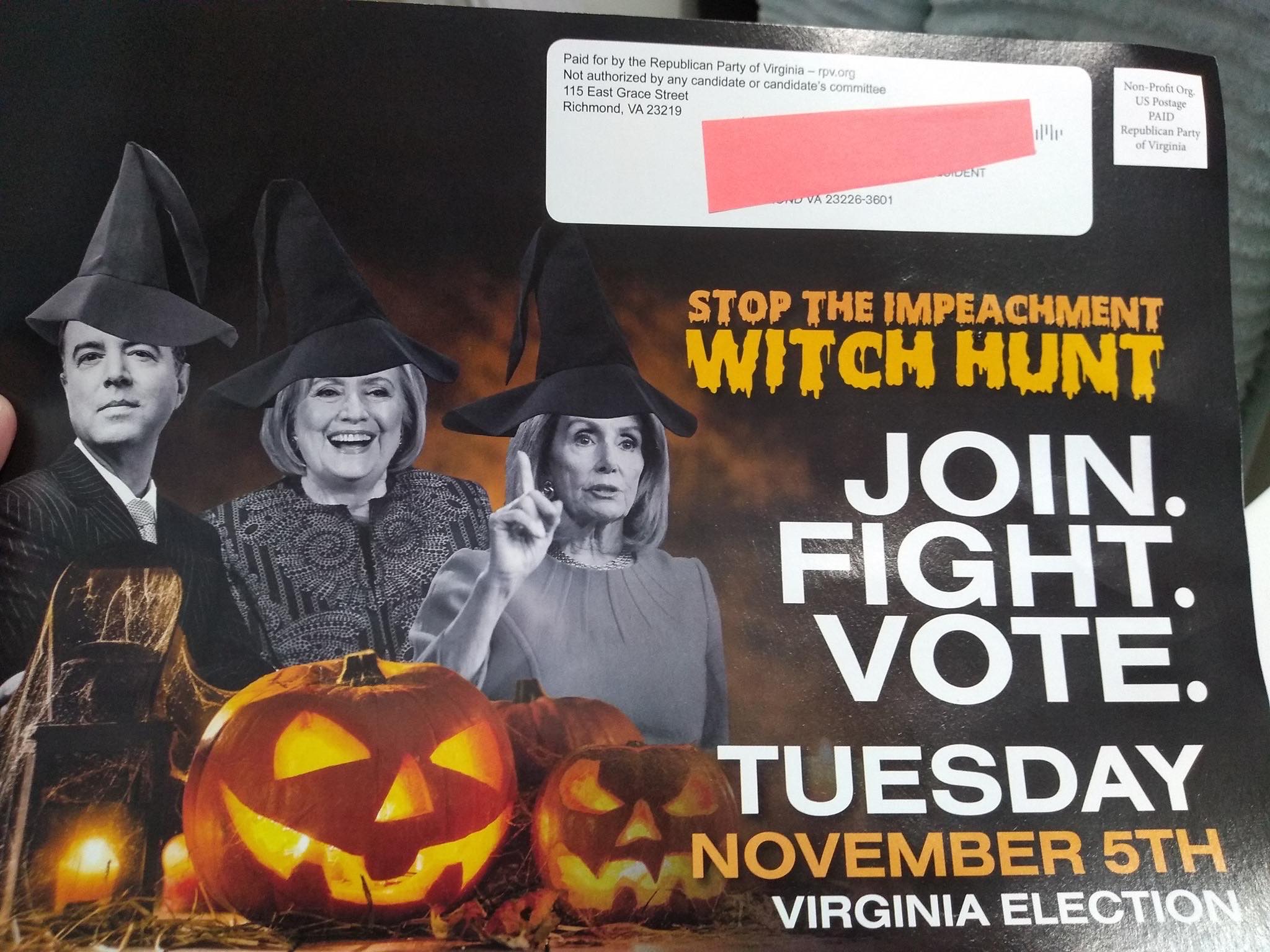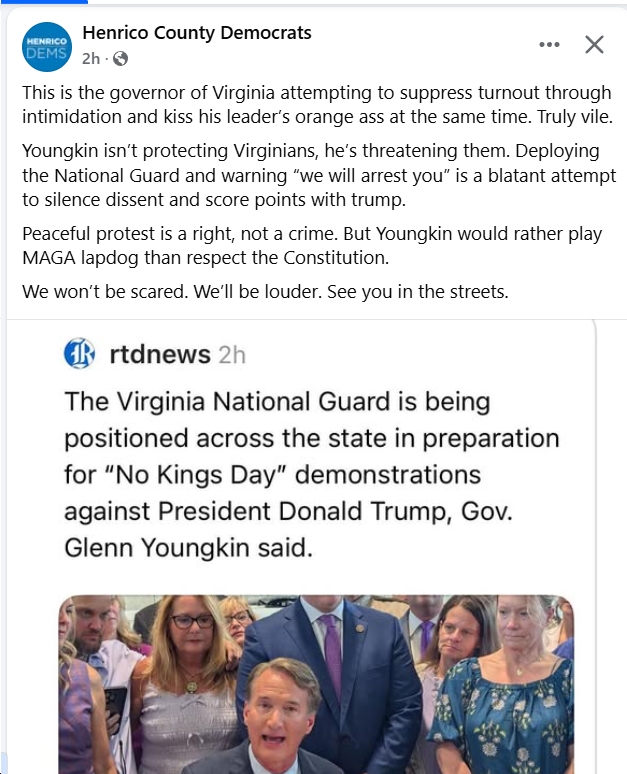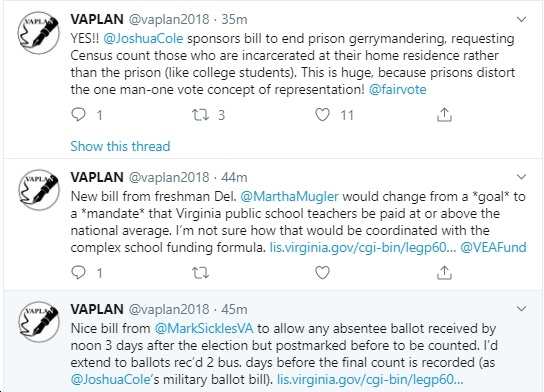by Robert Reynolds, co-founder of VoteTripling.org, a PAC that trains campaigns across the country on new, behavioral science-based voter turnout tactics. He lives in Washington, DC.
A few votes may decide many of Virginia’s June 11th Democratic primary elections. With several races having three people on the ballot, votes will be diluted across many candidates. Further, most locals usually skip these off-year primary elections. As a result, tipping a handful of votes could swing numerous races.
To tilt polls in their favor, state legislative candidates should use “vote tripling,” a strategy the Leslie Cockburn for Congress (VA-5) campaign piloted last fall. Here’s how the method works: After campaign volunteers identify a supporter, they ask them to pledge to get three like-minded friends to vote. Behavioral science research underpinning this technique indicates that creating a plan to mobilize your friends makes you far more likely to take action.
Studies find last-minute appeals can persuade voters because many people wait until Election Day to decide who to vote for. And new evidence suggests the percent of ‘late deciders’ is increasing.
Arbitrary things—such as where they vote—sway many late-deciding Americans. For instance, voting at a school boosts support for liberal issues, while polling places that prime thoughts of religion increase backing for conservative causes. Studies also find that when college football teams win a big game right before Election Day, swayable citizens vote for the incumbent at higher rates (theoretically because the status quo feels great).
In Virginia’s 2019 primaries, an especially large share of voters may be arbitrarily swayed. Many races will be without an incumbent, a factor that leads many swayable voters to just pick the first name on the ballot. Further, many districts also have three candidates, something academics find exacerbates biased electoral decision-making.
Fortunately, research finds swayable “late deciders” can be persuaded by their peers. So, how can campaign staff—people swamped with 100-plus hours of weekly work—find time to spark thousands of supporters to mobilize their swayable friends?
First, campaigns can enlist “vote triplers” via canvassing. Instead of asking supporters to sign commit to vote pledge cards (a tactic my research finds voters perceive to be condescending), campaigns can ask them to pledge to get three friends to vote. Last fall, when the Cockburn campaign implemented this program, they succeeded in getting several thousand voters to say “yes” to this bite-sized task and to share their cell phone number so they could get a personalized Election Day text message reminding them which three friends they pledged to mobilize.
Second, campaigns can enlist vote triplers at polling places. Traditionally, campaigns send volunteers to polling places on Election Day to pass out “sample ballots.” However, last fall the Cockburn campaign amplified these volunteers’ impact by providing them with “polling place vote tripler cards” that they handed out to individuals who had just cast their ballot. The front of the business card-sized handouts stated, “Triple your vote: remind three friends to vote today!”, and the back included sample SMS language to send a friend. Although the exact number remains unknown, countless voters took the cards and said they would be delighted to remind their friends to vote.
With few people voting—and those votes spread across many candidates in some competitive districts—numerous Virginia state legislative races may be decided by just a few ballots. Despite campaigns’ best efforts to secure voters’ support, many reliable voters will remain persuadable on June 11th. To win the support of these Virginians, campaigns should use vote tripling to make sure undecided voters receive personalized, Election Day appeals from people they trust.

